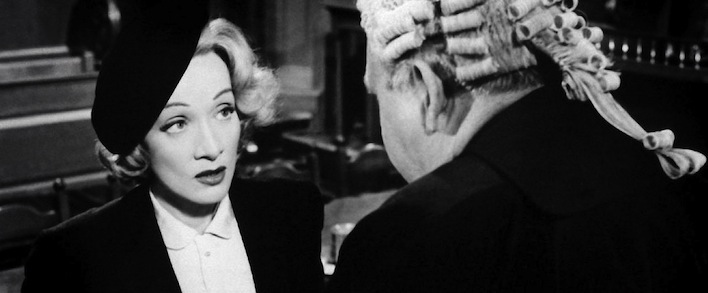Employment Contracts and Marriage Settlements in Thomas Mann's The Tales of Jacob
Abstract
Together with the representation of the justice court, the pact scene is one of the narrative elements that are more interesting for ‘Law in Literature’ studies. The pact, in his double meaning of ‘horizontal’ agreement between two people and ‘vertical’ alliance between a man and a supreme divine or diabolical being, is particularly present in the narrative work of Thomas Mann. The tale of the seven years biblical waiting of Jacob and Rachel that is told in the first volume of Joseph tetralogy, Die Geschichten Jaakobs, gives one of the most significant examples in this sense. This is the series of three contracts signed by Jacob and Laban, Rachel’s father, which are anomalous because they are employment contracts and marriage settlements at the same time. By a careful rereading of this scene, the paper aims to investigate which is the main narrative function of the scene of the pact in the fictional context. Totally absent from the biblical source, the scene of the contract becomes the instrument, inside the novel, of that process of ‘dilatation’ and ‘humanization’ of the myth on which Mann’s monumental rewriting is found.
Downloads
References
Blechschmid, Hansgeorg, Thomas Mann und das Recht, München, Anja Gärtig Verlag, 2004.
Boitani, Piero, Ri-Scritture, Bologna, Il Mulino, 1997.
Cambi, Fabrizio, Mito e epicità. La conquista dell’umano in “Giuseppe e i suoi fratelli”, in Thomas Mann, Giuseppe e i suoi fratelli, I, trad. it. di Bruno Arzeni, Ed. Fabrizio Cambi, Milano, Mondadori, 2000: XI-LV.
Id., “Giuseppe e i suoi fratelli di Thomas Mann: attualità del mito e strategie compositive”, Cultura tedesca, 19 (2002): 193-202.
De Vaux, Roland, Le Istituzioni dell’Antico Testamento, trad. it. di Marocco e Arcozzi, Torino, Marietti, 1972.
De Luca, Arianna, Scritto nella pietra. La lettura della Bibbia nel romanzo di Thomas Mann, Bari, Laterza, 2004.
Di Rocco, Emilia, Letteratura e Legge nel Trecento inglese. Chaucher, Gower e Langland, Roma, Bulzoni, 2003.
Garapon, Antoine – Salas, Denis (eds)., Imaginer la loi. Le droit dans la littérature, Paris, Michalon, 2008.
Ferretti, Linda, Thomas Mann e il tempo, Roma, Jouvence, 1980.
Friedmann Daniel, Diritto e morale nelle storie bibliche, trad. it. di Diana Zerilli, Milano, Giuffré, 2008.
Hamburger, Käte, Thomas Manns biblisches Werk, Frankfurt am Main, Fischer, 1984.
Heftrich, Eckhard, Joseph und seine Brüder, in Thomas-Mann-Handbuch, Ed. Helmut Koopmann, Stuttgart, Kröner Verlag, 2001: 447-474.
Jaeger, Nicola, Il diritto nella Bibbia. Giustizia individuale e sociale nell’Antico e nel Nuovo Testamento, Assisi, Edizioni Pro Civitate Christiana, 1960.
Jeremias, Alfred, Das Alte Testament im Lichte des alten Orients, Leipzig, Hinrichs, 1916.
Jesi, Furio, Thomas Mann, Firenze, La Nuova Italia, 1975.
Lévi-Strauss, Le structures élémentaires de la parenté, Paris, PUF, 1947.
Mann, Thomas, Joseph und seine Brüder (1933-1943), Frankfurt am Main, Fischer Verlag, 2008, trad. it. Giuseppe e i suoi fratelli, trad. di Bruno Arzeni, Ed. Fabrizio Cambi, Milano, Mondadori, 2000.
Id., Giuseppe e i suoi fratelli. Una conferenza, in Giuseppe e i suoi fratelli, II, trad. it Bruno Arzeni, Ed. Fabrizio Cambi, Milano, Mondadori, 2000: 1465-1483.
Mann, Thomas – Kerényi, Carl, Gespräch in Briefen, Rhein, Zürich 1960, trad. it. Dialogo, trad. di Ervino Pocar, intr. di Giacomo Debenedetti, Milano, Il Saggiatore, 1973.
Ost, François, Raconter la loi. Aux sources de l’imaginaire juridique, Paris, Odile Jacob, 2005.
Runge, Doris, Frauen in Josephsroman, in Thomas Mann Jahrbuch, 6, Ed. Eckhard Heftrich e Hans Wysling, Frankfurt am Main, Klostermann, 1993: 223-234.
Copyright Notice
You are free to copy, distribute and transmit the work, and to adapt the work. You must attribute the work in the manner specified by the author or licensor (but not in any way that suggests that they endorse you or your use of the work).









